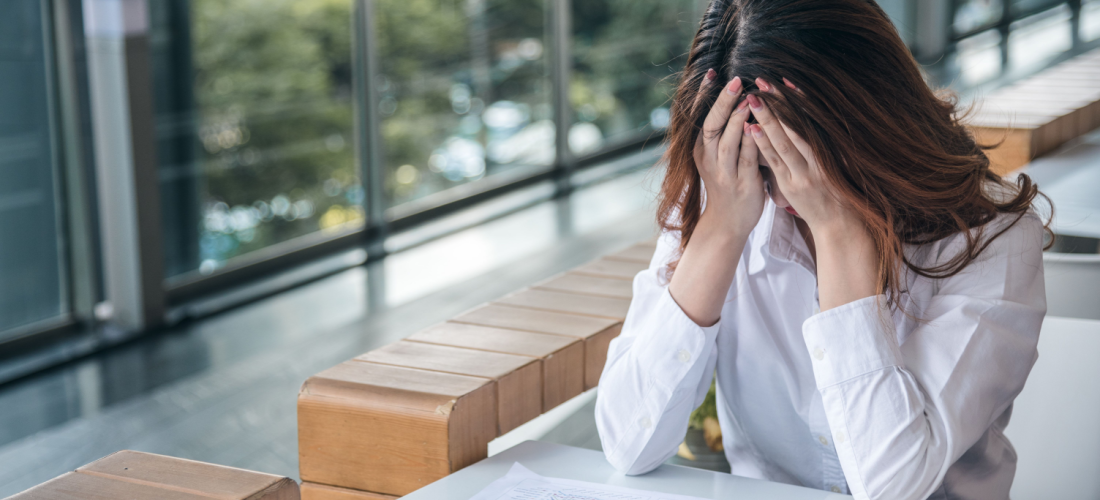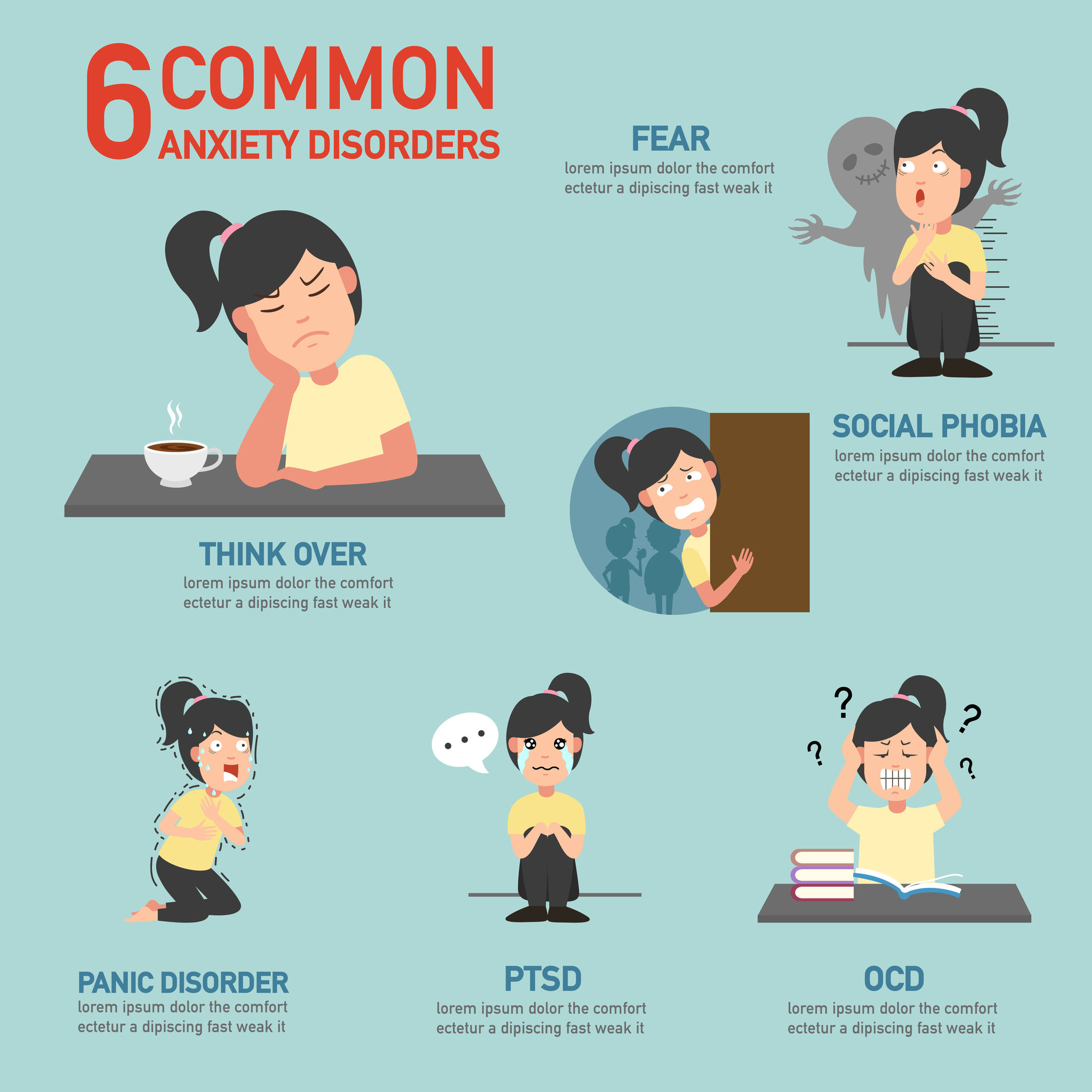Start your process with counselling for anxiety disorder guided by professionals
Start your process with counselling for anxiety disorder guided by professionals
Blog Article
Exploring Different Strategies in Counselling for Anxiety Disorder for Lasting Modification
When taking on stress and anxiety conditions, it's important to explore a selection of therapy approaches. Each method offers one-of-a-kind understandings and devices to help you manage your symptoms effectively. You could discover that integrating strategies can yield the best outcomes. Understanding the subtleties of these methods is vital to cultivating long lasting adjustment. What if the best combination could release a brand-new level of emotional wellness for you?
Understanding Stress And Anxiety Problems: A Brief Summary
Anxiety conditions, which affect countless people worldwide, can greatly affect daily life. You could experience overwhelming feelings of concern or stress that appear unmanageable. These feelings can cause physical signs like an auto racing heart, sweating, and even lightheadedness. Typical kinds of anxiousness disorders consist of generalized anxiousness disorder, panic attack, and social anxiety disorder. Each has special indications, yet they all share a tendency to interrupt your regular and relationships.Understanding the root creates of your stress and anxiety is essential. It could come from genes, mind chemistry, or life experiences. Identifying your triggers can aid you manage your actions better. It's important to keep in mind that you're not alone in this battle. Lots of people face similar difficulties, and looking for aid is a strong action toward sensation better. By finding out about stress and anxiety problems, you're currently on the path to understanding and managing your condition more successfully.
Cognitive-Behavioral Treatment: Testing Adverse Thought Patterns
In Cognitive-Behavioral Treatment, you'll begin by recognizing the negative idea sets off that add to your stress and anxiety. You'll work on replacing them with more favorable options when you recognize these thoughts. With each other, you'll construct efficient coping strategies to aid handle your stress and anxiety in day-to-day circumstances.
Recognizing Unfavorable Thought Triggers

When you encounter moments of distress, identifying the particular triggers behind your unfavorable ideas can be important in taking care of anxiousness. Begin by taking note of circumstances that prompt sensations of fear or fear. Is it a jampacked space, an approaching due date, or a conversation with specific people? Take down these circumstances in a journal. This will help you determine patterns in your thinking. Additionally, notification physical sensations that accompany your unfavorable thoughts, like a racing heart or tightness in your upper body. By pinpointing these triggers, you gain understanding into what's sustaining your anxiousness. Comprehending these connections is the initial step in testing those ideas and ultimately regaining control over your psychological actions.
Replacing Thoughts With Positives
Testing negative thought patterns is an essential action in changing your attitude and decreasing anxiousness. You might frequently discover yourself trapped in cycles of self-doubt or disastrous reasoning. Rather than letting these thoughts dictate your feelings, method changing them with positive affirmations or realistic options. As an example, when you think, "I can not manage this," change it to, "I can manage challenges one step each time." This basic adjustment can substantially affect your mood. Routinely recognizing and countering these unfavorable thoughts aids create a much healthier inner dialogue. Remember, it takes some time and effort, but continually practicing this strategy can cause lasting modification, equipping you to encounter anxiousness with restored confidence and resilience.
Structure Coping Techniques Together
Changing unfavorable ideas is only the beginning of taking care of anxiousness properly. To produce long lasting change, you need to develop coping approaches that equip you. Cognitive-Behavioral Treatment (CBT) helps you identify and test those purposeless thought patterns. With each other, you and your counselor can discover exactly how these thoughts impact your sensations and behaviors.Start by creating functional methods, like journaling or mindfulness exercises, that permit you to confront anxiety head-on. When you encounter your concerns gradually, you'll find out to respond differently.

Mindfulness and Acceptance-Based Approaches: Growing Present-Moment Awareness
As you browse the complexities of anxiousness, incorporating mindfulness and acceptance-based approaches can substantially improve your capacity to cultivate present-moment recognition. By concentrating on the present moment, you'll find that you can observe your thoughts and feelings without judgment (Counseling services for anxiety). This practice assists you recognize your anxiety without feeling bewildered by it.Engaging in mindfulness exercises, such as deep breathing, body scans, or directed reflections, permits you to ground yourself in your current experience. Acceptance-based approaches encourage you to accept your feelings as opposed to battle against them. They shed their power over you.Incorporating these methods right into your daily routine can transform how you react to anxiety when you approve your sensations. You'll develop strength and find out to navigate stressful circumstances with higher ease. Eventually, cultivating present-moment recognition lays the structure for long lasting adjustment, encouraging you to lead an extra meeting life
Direct Exposure Treatment: Challenging Fears Gradually
Exposure treatment aids you face your concerns in a steady method, making it much less overwhelming. You'll learn methods to deal with anxiety-provoking circumstances detailed, while additionally constructing coping techniques to manage your responses. This strategy encourages you to take control and lower anxiousness with time.
Steady Direct Exposure Strategies

When dealing with stress and anxiety, slowly confronting your concerns can be a powerful means to restore control. This method, known as progressive exposure, includes slowly subjecting on your own to the scenarios or things that activate your anxiety. Beginning with much less intimidating situations and gradually work your method as much as more tough ones. For instance, if you hesitate of public speaking, you may start by speaking before a mirror, after that proceed to sharing thoughts with a friend, and ultimately resolve a small team. Each action helps desensitize you to the concern, constructing your confidence gradually. Keep in mind, it's vital to pace yourself and celebrate little victories as you relocate through this procedure, reinforcing your capability to manage stress and anxiety effectively.
Building Coping Methods
Building effective coping techniques is important for taking care of anxiety, especially as you confront your worries slowly - Counseling services for anxiety. One powerful approach is direct exposure treatment, where you begin by encountering your anxieties in a controlled way. Begin with less daunting circumstances and slowly function your means approximately even more difficult situations. This steady exposure aids desensitize you to anxiousness causes, making them much less overwhelming.Incorporate leisure strategies, such as deep breathing or mindfulness, to relax your mind throughout direct check here exposure. Track your development, celebrating tiny triumphes along the means to improve your self-confidence. Bear in mind, it's alright to take your time; the objective isn't perfection but steady enhancement. By developing these methods, you'll equip yourself to browse stress and anxiety and accept life a lot more fully
Psychodynamic Therapy: Revealing Origin Causes of Anxiety
Psychodynamic treatment checks out the unconscious mind, revealing the origin of your anxiety. By examining your ideas, feelings, and previous experiences, this method helps you discover underlying conflicts and unsettled concerns that might add to your current anxiousness. You'll deal with a therapist to explore youth experiences, relationships, and emotional patterns that form your actions today.As you gain understanding into these deeper layers of your subconscious, you'll start to recognize exactly how previous events affect your existing habits. This understanding can lead to catharsis, permitting you to process feelings you might have suppressed.Through the restorative connection, you can also determine defense reaction that might have developed over time, providing a more clear path to alter. Inevitably, psychodynamic treatment outfits you with the devices to resolve your stress and anxiety at its core, advertising long-term change in your psychological well-being.
All Natural and integrative Approaches: Incorporating Techniques for Greater Efficacy
Incorporating various restorative methods can enhance your trip toward handling anxiety better. By incorporating elements from cognitive-behavioral therapy, mindfulness practices, and all natural approaches, you can create a personalized technique that addresses your one-of-a-kind requirements. You could make use of cognitive-behavioral strategies to test unfavorable idea patterns while integrating mindfulness exercises to ground yourself in the present moment.Additionally, exploring all natural techniques such as yoga exercise or reflection can promote relaxation and lower anxiety symptoms. This mix permits you to create higher self-awareness and resilience.Experimenting with these diverse methods can help you uncover what reverberates most with you. Keep in mind, it's regarding finding a synergy that functions, as opposed to staying with a single approach. This integrative approach not just provides instant relief but likewise cultivates long-term skills for managing anxiety, encouraging you to reclaim control over your life.
The Duty of Support Equipments: Structure Strength Through Link
While it may appear that handling stress and anxiety is a solitary trip, having a strong support group can play a crucial function in your resilience. Bordering yourself with understanding friends, family members, or support system creates a risk-free space where you can honestly share your feelings and experiences. When you link with others, you remind on your own that you're not alone in this struggle.These partnerships supply inspiration and can supply practical coping approaches that have functioned for others. It's likewise an opportunity to acquire point of view; friends can aid you see circumstances in different ways, decreasing sensations of isolation.Moreover, emotional support fosters a feeling of belonging, which can considerably ease anxiety signs. By leaning on your assistance system, you can build durability and take on difficulties more successfully. Bear in mind, connecting for help suggests stamina, and it can make all the distinction in your trip toward managing stress and anxiety.
Often Asked Inquiries
What Are the Common Signs of Stress And Anxiety Problems?
You could experience uneasyness, exhaustion, difficulty concentrating, irritation, muscle mass stress, and rest disturbances. Physical signs can consist of quick heart beat, sweating, and trembling. Acknowledging these indicators early can help you seek appropriate support and treatment.
The Length Of Time Does Therapy Normally Last for Anxiousness Disorders?
Therapy for anxiety problems typically lasts anywhere from a couple of weeks to numerous months. It really depends on your specific requirements, progress, and the techniques your specialist makes use of to aid you handle your stress and anxiety successfully.
Can Drug Be Used Together With Treatment for Anxiety?
Yes, medicine can most definitely be utilized along with therapy for stress and anxiety. Incorporating both approaches commonly enhances therapy effectiveness, helping you handle signs and symptoms while exploring underlying problems through counseling (Counseling services for anxiety). Constantly consult your medical care service provider for tailored recommendations
Are There Self-Help Strategies for Handling Stress And Anxiety?
Yes, there are numerous self-help strategies for handling anxiety. You can exercise mindfulness, engage in routine exercise, preserve a balanced diet plan, develop a routine, and utilize deep breathing strategies to aid reduce anxiousness signs and symptoms effectively.
How Do I Know if I Need Professional Help for Anxiety?

Report this page